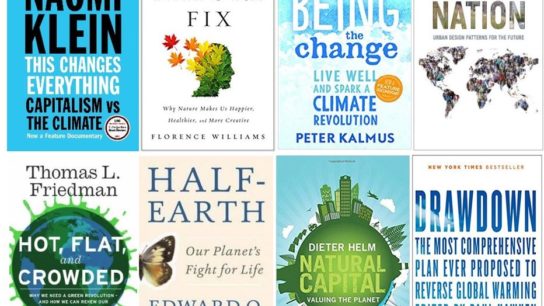When corporations set a goal to be more environmentally friendly, people expect them to keep their word. However, it is often the case that their attempts aren’t successful. Why do CEOs fall short of their environmental goals?
—
9 Reasons Why CEOs Fall Short of Meeting Environmental Targets
1. Lack of Accountability
Many chief executive officers (CEOs) are responsible for environmental goals and initiatives because they are the highest-ranking executives. While it seems they could easily make decisions for their organisations, they often face challenges and fall short of their goals. One of the primary reasons this occurs is a need for more accountability.
Out of 530 corporate executives, over 50% feel unconfident in the longevity and success of their environmental, social and corporate governance (ESG) programmes. Generally, no repercussions exist for those who do not focus on the success of their initiatives because their stakeholders cannot or will not enforce any.
The lack of accountability concerns many, considering companies set and monitor the targets themselves. Since they decide the timeline of their plans, there is no real pressure to succeed. For example, less than one-fourth of firms are on track to meet their goals for the Paris Agreement as of 2021. When CEOs do not have a strict schedule, they are more likely to push back their ESG programs in favour of other priorities.
You might also like: ESG Investing in 2023: A Rising Trend Amid Greenwashing Concerns
2. Unforeseen Circumstances
Even when CEOs are devoted to their organisation’s environmental impact, situations may prevent them from achieving their sustainability goals. For example, over 111,000 non-residential fires occurred in the US in 2020, causing damages of over US$3.4 million. Businesses cannot predict such situations, and it can be challenging for them to prioritise their ESG program in light of unforeseen circumstances.
3. Conflicts of Interest
Some organisations fall short of their ESG goals because of conflicts of interest. For example, the CEO of BlackRock stated that sustainability “is the new standard” despite continuously investing in fossil fuels and delaying their ESG achievement dates. He received pushback from stakeholders for claiming to be environmentally conscious while funding an unsustainable practice. When top executives say they will improve their green efforts without following through, they fall short of their commitment.
4. Lack of Support
Even when CEOs implement environmental goals and attempt to follow through with them, there is not always complete support. In fact, 81% of business leaders feel unconfident in their formal programmes because their organisation does not meet its own standards. While they can declare new programmes and establish a plan of action, this requires assistance from every company level to succeed.
5. Complexity of Commitment
Following through with an environmental initiatives can be complex. Business leaders must consider the financial, legal, and ethical aspects going into their decision, along with possible repercussions for the entire organisation.
Additionally, many variables can make it challenging to stay aligned with their ESG programmes. For example, around 83% of CEOs claim that current geopolitical instability limits their ability to achieve their sustainable development goals. A lot of work goes into figuring out how to integrate their plan with their business, and the complexity is enough to make many fall short of their commitment.
6. Challenge of Scalability
When a business cannot adapt to growing demand, it typically has to reduce its commitments. Although many CEOs are initially successful with their environmental initiatives, they might fall short because of scalability issues. Most businesses are unable to scale their environmental initiatives because of conflicting internal beliefs about sustainability. They might give up if they cannot balance their efforts with expectations.
7. Regulatory Concerns
Many CEOs stray from their ESG programmes over concerns of regulatory organisations. In fact, over 50% of companies feel regulations are the most significant external factor that will impact their operations within the next few years. They are typically less likely to commit to sustainability when they are limited by laws or have to deal with various policies to stay compliant.
8. Greenwashing
Greenwashing refers to a situation in which an organisation convinces its stakeholders they are positively impacting the environment without actually taking action. It is the process of misleading people into thinking a company is environmentally friendly by exaggerating its sustainable aspects or impact. CEOs fall short in environmental initiatives when they greenwash their organisation’s services or products.
You might also like: 10 Companies Called Out For Greenwashing
9. Perceived Low Value
Although most CEOs claim they recognise the competitive advantage of a sustainable business model, less than half experience revenue growth, and only 25% see reduced expenses. While the value of environmental initiatives is high for consumers and the planet, many businesses simply do not see a financial incentive.
On top of that, many feel they should de-prioritise environmental programs in general. A 2023 study of 1,476 executives conducted by The Harris Poll found that ESG programmes dropped from their top priority to their third. For most, the main reasoning behind the decision was that there was too much external pressure to stop prioritising them.
What Are Potential Solutions for CEOs Falling Short of their Environmental Targets?
The success of environmental programmes falls to the top executives, so it is essential for them to receive help and resources. Many of the reasons they fall short of their goals have simple solutions.
There are a few potential solutions for CEOs who are falling short:
- Stronger accountability: For CEOs to stay aligned with their environmental goals, they must find something to hold them accountable. For example, many companies are investing in Leadership in Energy and Environmental Design because it is a third party that verifies ecological impact and improves eco-friendly practices.
- Complete cost analysis: While many do not see a point in ESG programmes because they do not create profit, they have value – they can increase an organisation’s reputation or brand loyalty. CEOs can do a complete cost analysis for their specific business to see their worth.
- Research and education: Since many business leaders fall short because they need more internal support, it may benefit them to educate staff at every level of the company. Increased organisational assistance can help them achieve their ESG goals.
CEOs can succeed with better internal education, stronger accountability, and research proving how valuable their ESG programme is. There is no single solution that can fix everything, but an actionable and direct response can help.
CEOs Can Meet Their Environmental Goals
CEOs are not successful in their attempts at making their organisation more environmentally friendly when they lack support, accountability, and information. It is fairly easy for them to fall short of their goals when they don’t have the proper tools to maintain a green initiative. Still, potential solutions like increased accountability and education can help them stay on the right track and ultimately succeed.
You might also like: Sustainable Capitalism: How Corporations Can Deliver Climate Change Solutions


















